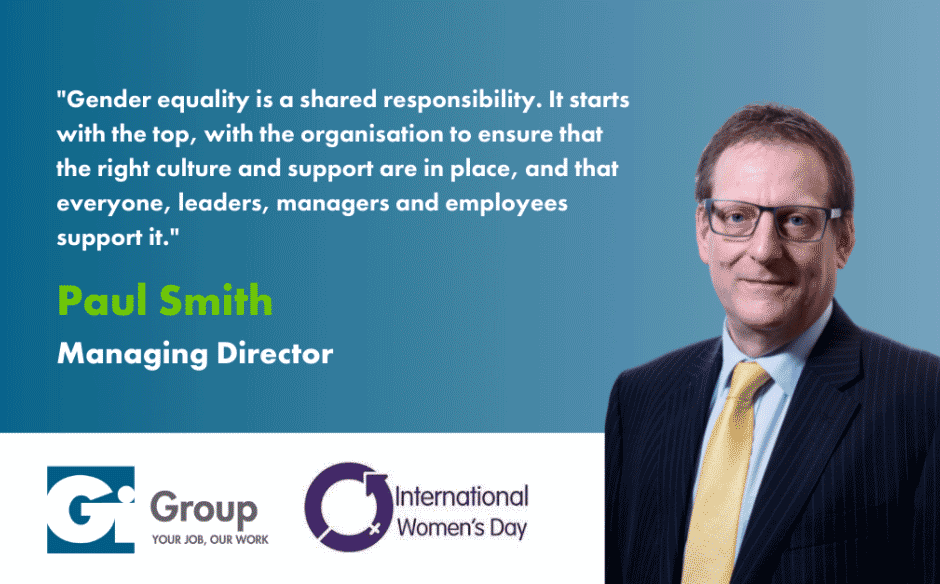- As Managing Director of UK Operations at Gi Group, what measures do you have in place to ensure gender biases don’t creep into Gi Group?
As an organisation, I’m proud to say that Gi Group UK has actually been at the forefront of championing gender equality. We have a long history of having female leaders within the business. As a business, we have worked hard to create a culture where females, regardless of seniority, feel empowered and are actively encouraged to express any concern at all about gender bias. This is one of my most important safeguards.
- How do you create an atmosphere where female employees can thrive in your organisation?
Open and honest communication is key. At Gi Group everyone’s voice is sought out and valued. Creating opportunities where women can come together, work on ideas and projects, and ultimately learn and support each other and speed up their career growth is also crucial. This is a framework that businesses and leaders, regardless of gender, have to ensure is in place.
- How would you feel if you saw female employees struggling with the impacts of gender bias?
This would be a real tragedy for me, I have two daughters myself and I would hate to think that they would be subject to gender bias anywhere – so it is incredibly important that we ‘walk the walk’ at Gi Group.
- If you were to see an instance of gender bias occur – how would you deal with this?
This would depend really on the type of bias – conscious or unconscious. My view is that conscious bias should always be handled head on and addressed immediately, unconscious bias may need a slightly different approach with training, coaching or mentoring.
- What can men do to help support and empower female colleagues in the workplace?
Men must champion and celebrate the successes of our female colleagues to continue to break down any barriers, perceived or real, that may exist in organisations. We need to promote a culture of meritocracy and highlight the value and contribution of our female colleagues in as big a forum as possible. And we shouldn’t be complacent about this either, we need to keep on doing this at every opportunity.
- Do you think the onus is on men to tackle the issue of gender inequality?
Gender equality is a shared responsibility. It starts with the top, with the organisation to ensure that the right culture and support are in place, and that everyone, leaders, managers and employees support it.
- Given that the number of women in FTSE 100 boardroom roles has jumped to 39.1% from 12.5% 10 years ago, how do you see the future for women in the workplace?
To see the so-called ‘glass ceiling’ being dismantled is really positive, but more still needs to be done if we really want to see the ‘level playing field’ we all want. The future for women in the workplace is bright and we must not allow ourselves a backward step. We know that women have been more negatively impacted by the pandemic, so it is up to businesses to ensure that female careers and career aspirations are supported.
- Obviously International Women’s Day plays an important role, but in general do we think UK business does enough to celebrate women in the workplace?
Things have certainly improved in the last 5 to 10 years, but there is always more work to do and like any key project, we must continually revisit and re-evaluate to make sure that momentum is not lost.
- As the Managing Director of UK Operations at a company where women make up a large proportion of senior roles, do you feel proud to work alongside so many strong and talented women?
Throughout my career I have always felt very lucky to have worked with and for some exceptionally talented and strong female role models – so in short, yes incredibly proud!
- Last question, how does gender diversity positively benefit your organisation?
There are so many benefits, but if we look at the aim of many private companies which is to make a profit, according to McKinsey, companies that have more gender diversity are 21% more likely to experience above-average profitability, and companies with more culturally and ethnically diverse executive teams were 33% more likely to see better-than-average profits. I think this speaks for itself as to why it is such an important issue to address!











